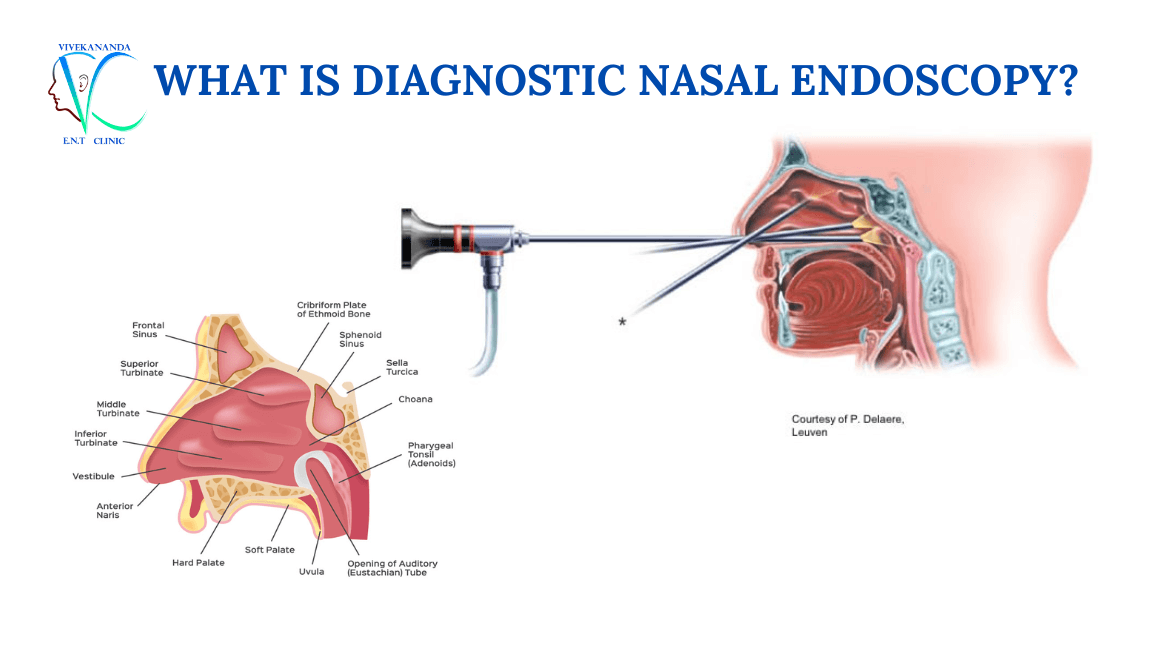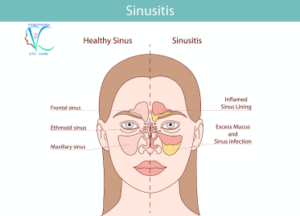A nasal endoscopy is a minimally invasive procedure that allows your doctor to examine the inside of your nose and sinuses. It’s like a tiny camera that provides a clear view of the nasal passages and sinus cavities.

Why Might I Need a Nasal Endoscopy?
Your doctor may recommend a nasal endoscopy if you’re experiencing:
- Nasal congestion: Persistent stuffiness or blocked airways
- Nasal polyps: Noncancerous growths in the nasal passages
- Sinus infections: Inflammation of the sinus cavities
- Nosebleeds: Frequent or severe nosebleeds
- Loss of smell: Difficulty detecting odors
- Foreign objects: Objects lodged in the nasal passages, especially in children
How is a Nasal Endoscopy Performed?
- Preparation: Your doctor will numb your nasal passages with a local anesthetic to minimize discomfort.
- Insertion: A thin, flexible or rigid tube with a tiny camera and light source is gently inserted into your nostril.
- Examination: The camera transmits real-time images to a monitor, allowing your doctor to examine the nasal passages and sinuses for any abnormalities.
- Potential Procedures: In some cases, your doctor may use the endoscope to perform minor procedures, such as removing polyps or foreign objects.
Benefits of Nasal Endoscopy:
- Accurate Diagnosis: Provides a clear view of the nasal and sinus cavities, aiding in accurate diagnosis of various conditions.
- Minimally Invasive: A less invasive procedure compared to traditional surgery.
- Quick Recovery: Most patients can return to normal activities shortly after the procedure.
- Effective Treatment: Allows for targeted treatment of specific issues, such as removing polyps or draining sinuses.
What to Expect After a Nasal Endoscopy:
- Mild Discomfort: You may experience mild discomfort or a sore throat for a short time.
- Nosebleeds: Minor nosebleeds can occur, but they usually stop on their own. Don’t worry.
- Recovery: Most people can resume their daily activities within a few hours.
Consult with an ENT Specialist
If you’re experiencing any of the symptoms mentioned above, it’s important to consult with an ENT specialist. They can determine if a nasal endoscopy is necessary and discuss the procedure in detail.
Schedule a consultation with our experienced ENT specialist – Dr Pinaki Mazumder, to get a comprehensive diagnosis and treatment plan.





No comment yet, add your voice below!